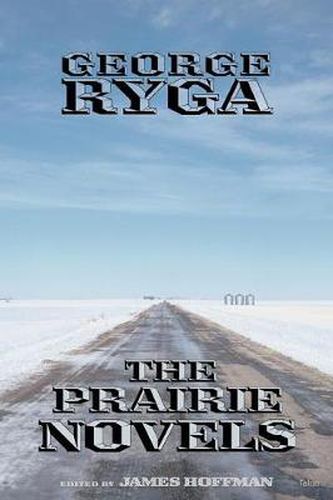Readings Newsletter
Become a Readings Member to make your shopping experience even easier.
Sign in or sign up for free!
You’re not far away from qualifying for FREE standard shipping within Australia
You’ve qualified for FREE standard shipping within Australia
The cart is loading…






James Hoffman, George Ryga’s biographer, provides a brilliant guide to the reader of this collection, with a compelling reappraisal of Ryga’s fiction as far ahead of its time. The three short novels included here-Hungry Hills, Ballad of a Stonepicker and Night Desk-draw from the same large canvas of rural, depression-era Alberta. They have similar stark prairie settings and a recognizable array of colourful, cantankerous homesteader and dirt farmer characters, all of whom take us in many pleasurable, disturbing and revealing directions, both historical and mythopoetic. This was a period of obstinate survival farming and boisterous, ethnically diverse community building, redolent with the more questionable aspects of colonial ‘settling’ and ‘breaking’ of the land, in a place that was never unsettled or unclaimed to begin with. Told in a homey vernacular, each of these three tales evokes a time and place that is as ironically as it is emphatically post-colonial. Ryga offers the reader (and re-reader) characters with a rough-hewn energy for survival and self-determination, and finds in them the beginnings of an authentic prairie culture defined by the anti-colonial struggle that so powerfully marks his work.
$9.00 standard shipping within Australia
FREE standard shipping within Australia for orders over $100.00
Express & International shipping calculated at checkout
James Hoffman, George Ryga’s biographer, provides a brilliant guide to the reader of this collection, with a compelling reappraisal of Ryga’s fiction as far ahead of its time. The three short novels included here-Hungry Hills, Ballad of a Stonepicker and Night Desk-draw from the same large canvas of rural, depression-era Alberta. They have similar stark prairie settings and a recognizable array of colourful, cantankerous homesteader and dirt farmer characters, all of whom take us in many pleasurable, disturbing and revealing directions, both historical and mythopoetic. This was a period of obstinate survival farming and boisterous, ethnically diverse community building, redolent with the more questionable aspects of colonial ‘settling’ and ‘breaking’ of the land, in a place that was never unsettled or unclaimed to begin with. Told in a homey vernacular, each of these three tales evokes a time and place that is as ironically as it is emphatically post-colonial. Ryga offers the reader (and re-reader) characters with a rough-hewn energy for survival and self-determination, and finds in them the beginnings of an authentic prairie culture defined by the anti-colonial struggle that so powerfully marks his work.